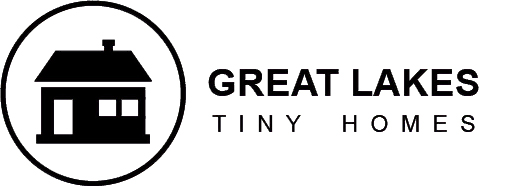You might be able to start a career as a professional organizer if you enjoy the sense of accomplishment you receive when you turn a chaotic mess into a tidy, organized, and useable place. But launching a business in the organization sector entails more than just tidying up messes.
There are things to comprehend before putting your home organization abilities to use and starting your business, from knowing the qualifications needed to become a professional organizer to advice on how to begin and position yourself for success. Don’t worry; we are here to help. Keep reading to find out how to start an organizing business.
What Is A Professional Organizer?
Clutter and chaos are transformed by a professional organizer into functional spaces for homes and companies.
Since it can be difficult for clients to throw things away, organizers frequently double as coaches, assisting clients in processing their feelings around artifacts. Additionally, to create systems that customers can successfully use, organizers need to study their clients
The organizers may perform some of the work themselves, but they typically employ outside contractors to carry out large-scale tasks like painting or installing shelving. The National Association for Professional Organizers, which offers training programs and other advantages to organizers, can be contacted by anybody interested in beginning their own business, even though professional organizers lack a universally acknowledged license.
Professional Organizer Categories
Before you start your professional organizing business, you need to establish what kind of business you will have. Study your organizing skills and determine which category suits you better.
Home Organizer
When it comes to home organization, your primary objectives will involve helping clients maximize the space they have, enhance their storage capabilities, and establish a routine that they can maintain even when you are not present. In addition to your proficient organizational skills, it is essential to exhibit patience, flexibility, and effective communication, as you will be dealing with individuals with different personality traits and lifestyles.
Office Organizer
If you prefer working in offices rather than clients’ homes, this could be a great market for your professional organization. Even more, if you specialize in creating user-friendly filing systems, designing comfortable and inviting workspaces, or digitizing old documents.
Closet Organizer
Even individuals who are organized and tidy struggle to keep their home closets in order. If you want to avoid dealing with kitchen and bathroom problems and instead focus on creating a system that helps your clients keep their closets organized in the long run, starting a closet-organizing business is a great option.
Other Categories
You have the freedom to be highly detailed with your professional organizing business, as long as you conduct thorough research and ensure that there is a sufficient number of potential clients within your target demographic to support your business.
How to Start An Organizing Business
Following these steps might make it quite simple to launch a home-based professional organizing business if you enjoy clearing clutter and assisting people in arranging their lives and surroundings.
Adopt the Correct Mentality
It’s crucial to consider this venture as a business you are developing and not just a side hustle or pastime if you want to properly set yourself up for success from the start. The fact that you are the CEO of your organizing company conveys to YOU (and others around you) the seriousness with which this enterprise should be treated.
Having a CEO attitude will help you maintain your focus. The more resilient your thinking, the more assuredly you’ll be able to shut out those outside influences and overcome any obstacles.
Hone Your Concept
Given what it takes to launch a professional organizing company, it seems sensible to develop your idea before entering a crowded industry.
Even if you are already certain that your product or service is ideal, market research will give you the upper hand. It’s crucial to conduct market research since it can help you better understand your clients, your rivals, and your industry.
Create A Business Plan
You must first create a business plan before moving on with anything else. You can count on this to completely change the way your company operates.
This is because a business plan will guide you through really laying the groundwork for your enterprise. Your company name, your brand colors, and your social media usernames can all be included in the plan. However, it also involves what goods and services you offer, how you intend to market them, and who your target clientele is.
It’s helpful to use these plans designed specifically for professional organizers to get your ideas crystal clear.
Know Your Target Clientele
Although you might find some people fit into your target market, those who are willing and able to pay for your services are probably more affluent. You can join Facebook groups or search on LinkedIn to find them.
Consider the people you are currently serving and the people you want to serve. Use it to identify your target market—not everyone—of people you can assist in becoming organized and promote it to them.
Set Your Services and Products
Knowing your target market will help you develop goods and services that meet their wants and are unique to them. Thus, they will purchase from you.
This section of your corporate plan is where you specify the services you offer and the associated costs. You can make a plan for the prices you currently charge and those you intend to charge in the future.
Structure Your Business
Don’t overlook creating a legal entity that is valid for your organizing business, as it is one of the keys to starting a new company. That is, by selecting a particular structure that you believe will work for your business, you are free to alter it as necessary afterward. Many alternatives are available, including corporations, partnerships, limited liability companies (often referred to as LLCs), and sole proprietorships.
We advise looking at companies that are comparable to yours and perhaps even getting in touch with the owners to ask them for guidance. Speaking with a business attorney could also be beneficial as they can outline the benefits and drawbacks of each corporate structure.
Choose A Business Name
After you’ve acquired the CEO mindset, the next step is to name your company. Don’t overthink it, and remember that once you’ve fully fleshed out your business concept, you can always change your business name.
When naming your organizing company, consider how you want people to see you and your company. Consider the services you will provide. Do you intend to expand your team? Do you aim to be the company’s public face?
Finally, you should select a name that speaks to you. You might go for something simple and catchy. You could also use your name. Spend some peaceful time thinking about the type of business you want to start, and then come up with a name that fits.
Get the Necessary Licenses and Permits
Depending on where you live, the appropriate permits for your new business will differ substantially.
Many professional organizers have early success by meeting with customers in their homes, which saves money on rental costs. It is important to remember that an at-home business requires an occupational license. We recommend registering your business and conducting some online research to determine your particular state’s requirements, and beginning a business—no matter how small—is always a good time to speak with a business attorney.
Promote and Market Your Organizing Company
Research your target market to determine who you believe your consumers will be and who you want them to be. Different firms discover that they have distinct target markets. Once you’ve identified your target market, start developing a strategy to reach them with the news of your business.
Consider advertising on social media platforms if your target demographic is younger and frequents them often. A news release, joining the right networking organizations, and making good use of your website are other options. Knowing and comprehending your target market is key to using email campaigns and newsletters effectively.
Business Insurance
Having the right business insurance is a crucial but frequently ignored responsibility. All businesses have different insurance requirements, but your organizing business may require insurance because it may involve physically demanding tasks like moving furniture. We advise speaking with a certified insurance agent.
FAQs
What Equipment Do Professional Organizers Need?
You will require some PPE for every task you take on, even if your clients’ belongings aren’t in total disorder.
Here are some examples of PPE that a professional organizer should have on hand:
- N95 masks or rebreathers lessen exposure to bacteria and viruses and prevent breathing in dust, mold, and chemicals.
- Nitrile gloves, as they are very dexterous, washable, and resistant to contamination.
- Disposable coveralls because they can protect your clothing from being damaged in any situation.
A fundamental toolkit for organizing is also required. For this, a soft-sided tool bag is ideal. Office supplies, labels, a black marker, measuring tape, small hand tools like screwdrivers, hammers, pliers, Clorox wipes, and adhesive remover are a few items you should consider putting in that kit.
How Expensive Is It to Start an Organizing Business?
A professional organizing business can be launched for between $2,000 and $5,000. The essential costs involve creating a website and setting up a marketing budget. Professional organization classes are another high-end option that is optional but can boost your credibility. The National Association of Productivity & Organizing Professionals (NAPO) offers classes you should take.
Is a Professional Organizing Business Profitable?
Thumbtack estimates that the average cost of professional home organizing services is between $50 and $60 per hour. On the high end, some businesses charge more than $150 per hour for their services.
As an independent contractor, you might want to start by charging lower prices, such as $18 per hour, to establish a clientele.
The Wrap-Up
Setting a strong foundation is important when launching an organizing business. Therefore, keep learning, keep participating, and look for the next chapter in whatever you do. You can go places you never thought possible with professional organizing!
We hope this article has given you some suggestions for long-term preparation for a successful professional organizing career.





